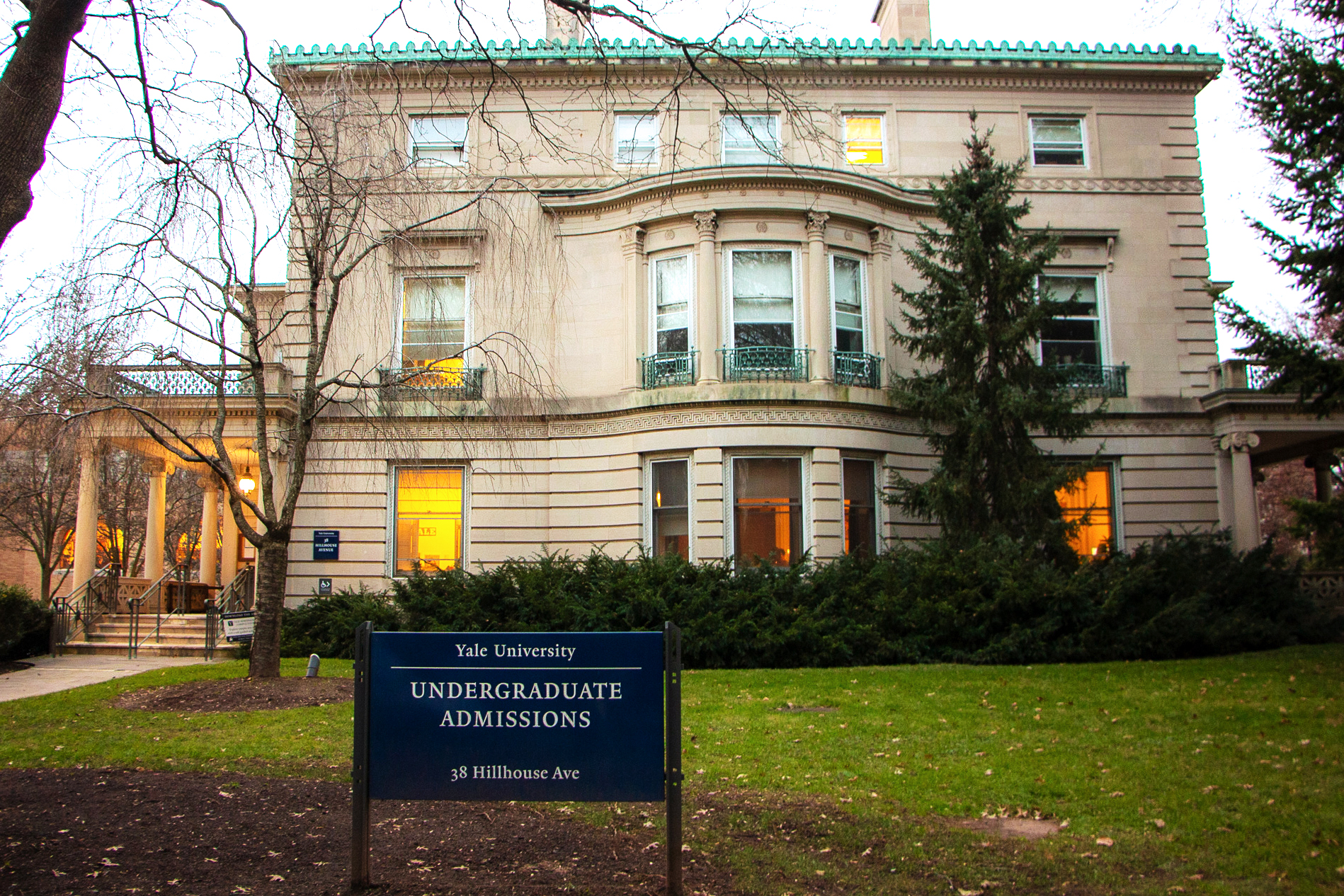DATA: Survey suggests Yalies support affirmative action at rates slightly higher than national average
In a News survey, 67 percent of 360 Yale students, staff and faculty expressed support for race-conscious admissions, compared to roughly 60 percent of Americans per national polls.

Logan Howard, Senior Photographer
Following the Supreme Court’s June decision to bar race-conscious college admissions, results from a News-issued survey suggest Yale students, staff and faculty to be generally more supportive of affirmative action than Americans overall.
Across the country, pollsters have attempted to gauge support for the retired policy among Americans. Compared to polls from the Associated Press, Pew and PBS, which report that 60 percent of respondents favored affirmative action, the 360 respondents to the News’ anonymous survey expressed slightly higher levels of support, with 67 percent indicating their support as a six or higher out of ten (ten being strong support).
The survey further suggests that staff and legacy students support race-conscious admissions models by the highest margin, compared to undergraduate and graduate students. Fifty-four percent of respondents rated their support for affirmative action as an eight or above out of ten, and 20 percent of respondents rated their support as a two out of ten or below.
Thirty-seven students who responded to the survey self-identified as legacies; according to official University figures, about 181 members of the class of 2027 are legacy students, or 11 percent. Overall, about 538 students in the classes of 2024, 2025 and 2026 are legacies, amounting to more than 700 legacy students in Yale College alone.
Staff and legacy students who responded to the survey were disproportionately white — 72 and 75 percent, respectively, compared to 47 percent of the whole sample — while legacy students were also disproportionately wealthy. Sixty-eight percent of self-identified legacy students reported an annual household income greater than $200,000, compared to 32 percent of the whole sample.
Crucially, the specific effects that the Court’s June ruling will have on admissions approaches are unclear, as a July analysis by the News listed six major questions about changing admissions models that remain unanswered. Dean of Undergraduate Admissions and Financial Aid Jeremiah Quinlan has committed to announcing changes to the Yale College admissions process in the coming months; meanwhile, the role of standardized test scores and legacy status in admissions is growing increasingly controversial, in large part because of the disproportional wealth and whiteness of legacy pools.
Here are five graphs summarizing the survey’s findings.
Support for affirmative action:
The results of the survey show that across all groups — legacy students, non-legacy students, staff and faculty — the majority support affirmative action, with staff and legacy students supporting the policy by the highest margin. Fifty-four percent of respondents rated their support for affirmative action as an eight or above out of ten, and 20 percent of respondents rated their support as a two out of ten or below.
Support for use of race in college admissions
The survey also asked respondents to rate their support for the consideration of race in college admissions. The results were similar to those of the previous question asking about support for affirmative action, with 55 percent rating their support as eight or above, and 67 percent as a six or higher. Faculty and legacy students also most strongly supported the use of race in admissions.
Support for use of race in admissions by race
When segmented by respondents’ racial identity, results show similarly broad support for race-conscious admissions across racial groups.
Support was strongest among Black and African American respondents, 87 percent of whom rated their support as eight or higher. Support was lowest among Asian respondents, as 52 percent rated their support for race in admissions as a four or below.
Although the survey included more racial and ethnic categories than displayed here, this chart reflects responses from the racial groups that the University — and most employers — uses in its reports.
Support for affirmative action by income
Forty-five percent of respondents with a self-reported household income of $30,000 or less rated their support for the use of the policy as an eight or above, as did 52 percent of those with a household income of $200,000 or more.
Heatmap of beliefs about admissions factors
Respondents also shared opinions on what factors admissions officers should weigh when deciding on an applicant’s future — and how heavily. For a set of potential components — gender, socioeconomic bracket, legacy status and athletic ability, among others — survey takers identified whether they felt that attribute constitutes a major or minor factor or should not receive consideration at all.
In the chart below, boxes are classified based on the median of the responses for the associated sample.
Across political groups, most agreed that socioeconomic status should be a major factor in college admissions. All groups also agreed that admissions officers should consider first-generation status and community service history, although their opinions varied regarding the importance of these factors.
All groups except for those who described their political affiliation as right-leaning opposed the consideration of legacy status. Respondents broke along political lines when it came to the use of race and ethnicity in admissions, with only those on the left supporting its consideration as a minor factor and those on the center and right opposing its consideration.
Nov. 1 marks the due date for early applications to the Yale College class of 2028, the first undergraduate application cycle post-affirmative action.







